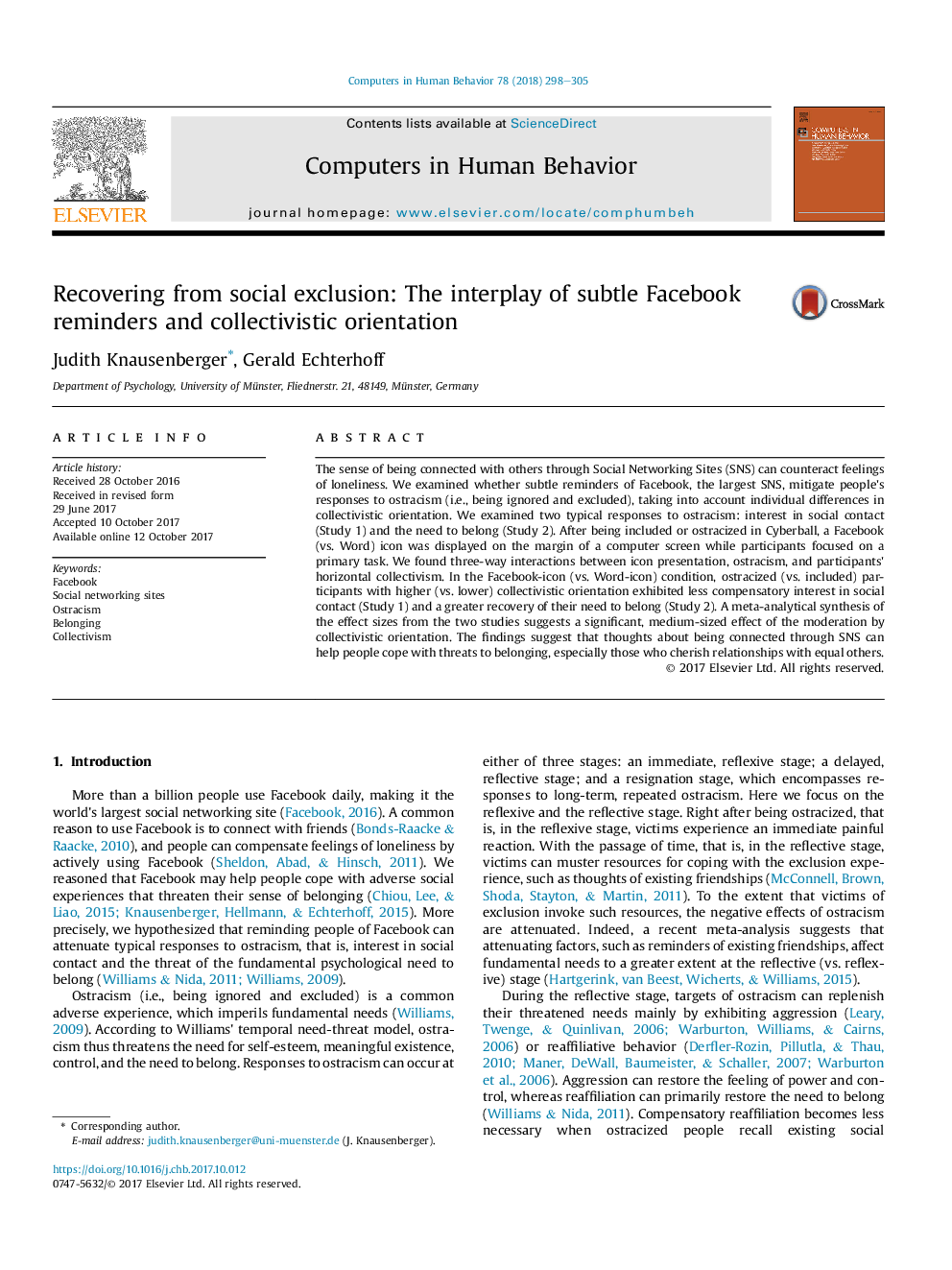| Article ID | Journal | Published Year | Pages | File Type |
|---|---|---|---|---|
| 4937011 | Computers in Human Behavior | 2018 | 8 Pages |
â¢Incidental perception of the Facebook icon mitigated responses to ostracism.â¢Mitigation found for interest in social contact and recovery of the need to belong.â¢Found primarily in participants with higher horizontal collectivistic orientation.â¢For this moderation, the estimated mean effect is significant and medium-sized.â¢Findings are important because of the proliferating presence of the Facebook icon.
The sense of being connected with others through Social Networking Sites (SNS) can counteract feelings of loneliness. We examined whether subtle reminders of Facebook, the largest SNS, mitigate people's responses to ostracism (i.e., being ignored and excluded), taking into account individual differences in collectivistic orientation. We examined two typical responses to ostracism: interest in social contact (Study 1) and the need to belong (Study 2). After being included or ostracized in Cyberball, a Facebook (vs. Word) icon was displayed on the margin of a computer screen while participants focused on a primary task. We found three-way interactions between icon presentation, ostracism, and participants' horizontal collectivism. In the Facebook-icon (vs. Word-icon) condition, ostracized (vs. included) participants with higher (vs. lower) collectivistic orientation exhibited less compensatory interest in social contact (Study 1) and a greater recovery of their need to belong (Study 2). A meta-analytical synthesis of the effect sizes from the two studies suggests a significant, medium-sized effect of the moderation by collectivistic orientation. The findings suggest that thoughts about being connected through SNS can help people cope with threats to belonging, especially those who cherish relationships with equal others.
